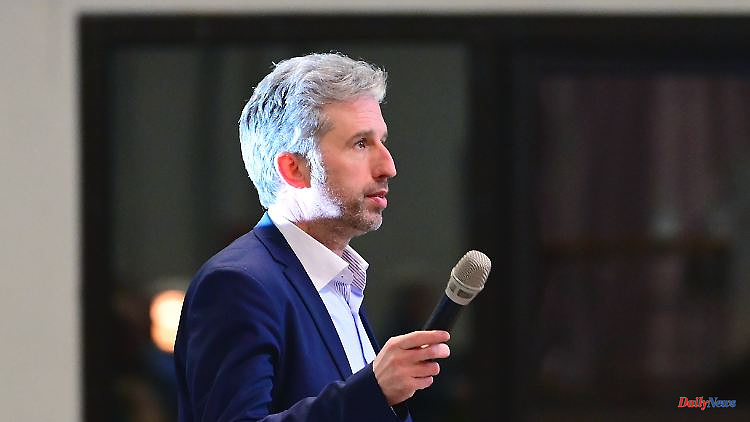It may sound revolutionary for the green base: A "Realo" group around the Mayor of Tübingen, Boris Palmer, is calling for more honesty in dealing with the issue of migration. Against the background of the New Year's Eve riot in Berlin, the memorandum contains some explosive material.
A group of real politicians in the Greens is calling for a new course in migration policy. A shift to the right is also to be feared in Germany if citizens continue to lose their sense of security, according to a manifesto by the Vert Realos group. "Vert" means "green" in French. The group also includes the mayor of Tübingen, Boris Palmer.
"There is no clear integration concept," says a memorandum from the group dated February 11. "The migrants don't know what is expected of them and set off on the long journey with false hopes." Hardly any distinction is made between war, asylum and economic migrants. The paper wants to contribute to the debate within their own party and in society, the authors write, "so that migration policy in Germany can be adapted to actual requirements. It should be characterized by humanity and empathy, but without being naïve or concealing problems". A gradual erosion of rule-of-law values "under the banner of false tolerance must be resolutely opposed," the paper continues.
One of the demands is that asylum seekers have to fit into the "historically evolved social order of the Federal Republic of Germany". The granting of asylum also presupposes that asylum seekers participate in the admission procedure and do not become criminal. "Otherwise, the right to asylum and thus the right of residence will lapse, which must also result in deportation (as soon as possible)." An immigration law for economic migrants is needed, but also "mandatory residence zones" for refugees both at the borders and outside the European Union. Asylum seekers without papers would have to be turned back or "remain in a state reception facility until their identity has been clarified".
The demand for a change of course comes shortly after the repeat elections in Berlin, in which the Greens came in third place, a hair's breadth behind the SPD - but far behind the election winner, the CDU. A big topic of the vote and in the election campaign were riots on New Year's Eve. The Greens were outraged by statements made by CDU politicians in the integration debate after the riots.
After the FDP was thrown out of the House of Representatives, FDP leader Christian Lindner called for lessons to be learned for the traffic light coalition's policy at the federal level. As one point he mentioned the integration policy. Lindner said that people would not let politically correct arguments talk them out of the "observations of unsuccessful integration in everyday life". There is a very clear expectation to prevent irregular migration to Germany. The memorandum of the Greens-Realos also stands against this background. For the party leadership, the debate could be uncomfortable.
One of the signatories is Jens Marco Scherf, Greens district administrator in Miltenberg in Lower Franconia. His recent appearance on Markus Lanz's ZDF talk show caused a stir. Scherf said that migration in his district was largely successful - but if it is to continue to succeed in the future, one must have the courage to "address grievances openly" without being defamed, without wanting to denigrate everyone.
At a meeting in Berlin on Thursday, the federal, state and local governments agreed on better coordination on the accommodation and care of refugees. However, the President of the German District Association, Reinhard Sager, was dissatisfied with the overall results.












